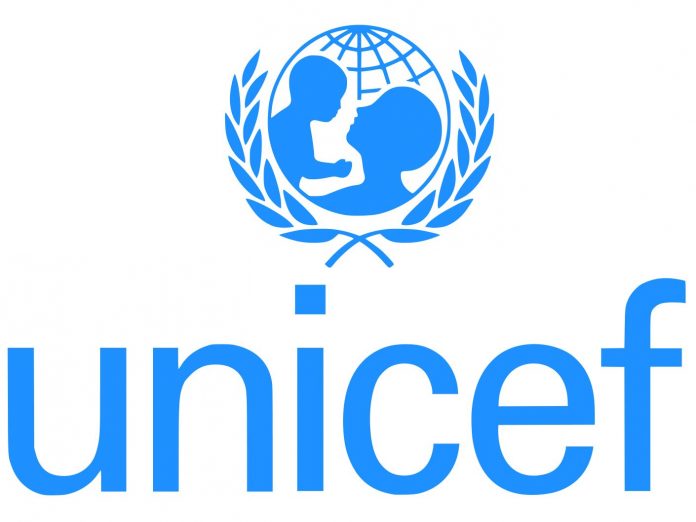TOYIN ADEBAYO, ABUJA
UNICEF in a new report released today, has warned of significant and growing consequences for children as the COVID-19 pandemic lurches toward a second year.
In a statement issued by UNICEF Communications Specialist, Mr Geoffrey Njoku shows that while symptoms among infected children remain mild, infections are rising and the longer-term impact on the education, nutrition and well-being of an entire generation of children and young people can be life-altering.
Released just ahead of World Children’s Day on 20 November, Averting a Lost COVID Generation is the first UNICEF report to comprehensively outline the dire and growing consequences for children as the pandemic drags on.
Peter Hawkins, UNICEF Representative in Nigeria hinted that, “Since the pandemic started, there has been a false belief that children are not affected by COVID-19.
“Nothing can be further from the truth, including in Nigeria. While children are less likely to have severe symptoms of illness, they can be infected – and the biggest impact by far is the disruptions to key services and increasing poverty rates, which are both having a huge impact on Nigerian children’s education, health, nutrition and well-being. The future of an entire generation is at risk – globally and in Nigeria.”
The new UNICEF report finds that, as of 3 November, in 87 countries with age-disaggregated data, children and adolescents under 20 years of age accounted for 1 in 9 of COVID-19 infections, or 11 per cent of the 25.7 million infections reported by these countries. In Nigeria, children in the same age group accounted for 1 in 10 infections, or 11.3 percent of total infections.
While children can transmit the virus to each other and to older age groups, there is strong evidence that, with basic safety measures in place, the net benefits of keeping schools open outweigh the costs of closing them, the report notes. Schools are not a main driver of community transmission, and children are more likely to get the virus outside of school settings.
COVID-related disruptions to critical health and social services for children pose the most serious threat to children, the report says. Using new data from UNICEF surveys across 140 countries, it notes that: Around one-third of the countries analyzed witnessed a drop of at least 10 per cent in coverage for health services such as routine vaccinations, outpatient care for childhood infectious diseases, and maternal health services. Fear of infection is a prominent reason. In Nigeria, the drop was between 17 percent and 22.5 percent for select services, compared to figures from 2019 in the same period, and is variable across the country.
There is a 40 per cent decline in the coverage of nutrition services for women and children across 135 countries. In Nigeria, that decline is estimated at 35 percent; 65 countries reported a decrease in home visits by social workers in September 2020, compared to the same time last year – including Nigeria.
More alarming data from the report include:As of November 2020, 572 million students are affected across 30 country-wide school closures – 33 per cent of the enrolled students worldwide.
An estimated 2 million additional child deaths and 200,000 additional stillbirths could occur over a 12-month period with severe interruptions to services and rising malnutrition.
An additional 6 to 7 million children under the age of 5 will suffer from wasting or acute malnutrition in 2020, a 14 per cent rise that will translate into more than 10,000 additional child deaths per month – mostly in sub-Saharan Africa and South Asia.
Globally, the number of children living in multidimensional poverty – without access to education, health, housing, nutrition, sanitation or water – is estimated to have soared by 15 per cent, or an additional 150 million children by mid-2020.
To respond to this crisis, UNICEF is calling on all governments and partners to: Ensure all children learn, including by closing the digital divide.
Guarantee access to nutrition and health services and make vaccines affordable and available to every child.
Support and protect the mental health of children and young people and bring an end to abuse, gender-based violence and neglect in childhood.
Increase access to safe drinking water, sanitation and hygiene and address environmental degradation and climate change.
Reverse the rise in child poverty and ensure an inclusive recovery for all.
Redouble efforts to protect and support children and their families living through conflict, disaster and displacement.
UNICEF Nigeria will commemorate World Children’s Day in Nigeria by amplifying the voices of children and young people calling for improvements in the situation of children in Nigeria, many of whom are playing an active role in their communities to help bring about that change.
UNICEF Nigeria will also introduce two new animated characters to Nigeria – “Lara and Ali” – who will bring regular messages to children about important child rights issues in a fun and educative way.
“World Children’s Day is an important day to commemorate but also recommit ourselves to addressing the rights and needs of children in Nigeria,” said Peter Hawkins. “We are asking the government, partners and the private sector to listen to children and young people about the Nigeria they want to see for themselves and their futures, and prioritize their needs. As we look ahead to a post-COVID-19 world, children must come first.”

